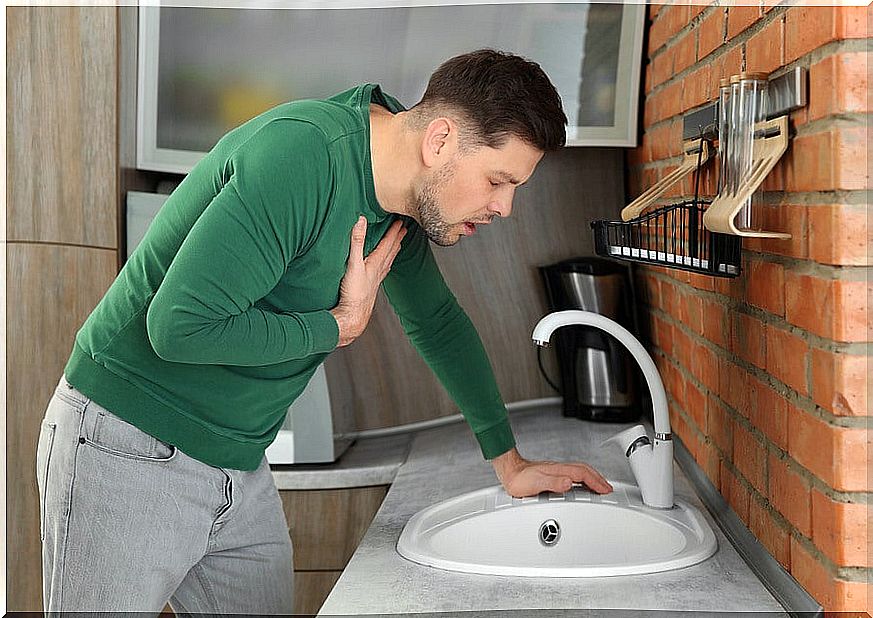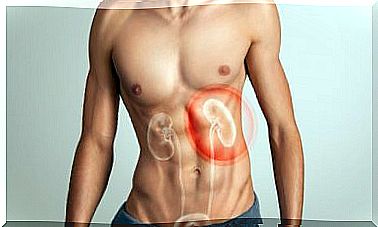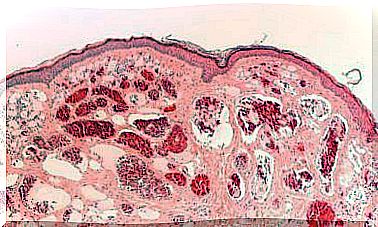Dehydration Due To Diarrhea
One of the acute pathological processes that is frequently seen in the emergency room is dehydration due to diarrhea. And what does this problem consist of? Let’s see it next.
Diarrhea is defined as a change in the frequency, volume and characteristics of stools, increasing their water content, becoming more liquid and foul-smelling. Globally, more than four million children die each year of dehydration from diarrhea.
Two-thirds of the body is made up of water. Faced with a significant loss of fluids and mineral salts, we can suffer dehydration. According to the World Health Organization, this is the result of an excessive loss of water from the body, the losses being greater than the amount of water we ingest.
These changes in body elimination can lead to an imbalance that would endanger our health. In this space you can learn everything you need to know about dehydration due to diarrhea.
Causes of dehydration
There is the possibility of dehydration due to the loss of too much fluid. With this, mineral salts that are part of the composition of the water are lost. You may also not be ingesting enough water to establish your water balance. But, in addition, it can be caused by a combination of both things, thus causing the body to suffer more serious dehydration.
A large amount of liquids can be lost by different processes:
- Excessive sweating: in summer or when exercising.
- Fever
- Vomiting or diarrhea
- Urinate too much: diseases such as diabetes can cause it, or some diuretic medications.
On the contrary, the cause may be insufficient water intake, which can be caused by:
- Not feeling hungry or thirsty due to illness
- Have nausea
- Have a sore throat or mouth sores

Dehydration process due to diarrhea
The kidneys and intestines work together to control the level of fluids that exist in the body. The intestine is responsible for absorbing water and salts, while the kidneys regulate the amount that must be eliminated in the urine.
In diarrhea, water is unable to reach the kidneys; It is not even capable of passing through the intestine, because there are many factors that prevent it from being absorbed. So the liquids are eliminated through the feces. This is the reason why the stool becomes liquid.
Symptoms that make us suspect
There is not always a way to know how much water the body needs. The presence of diarrhea should already be an alarm symptom that forces us to increase water intake.
The different signs and symptoms that can appear when we suffer from dehydration due to diarrhea are:
- Thirst: which will lead to a dry and sticky mouth
- Less frequent urination: with dark urine from concentration
- Cold and dry skin
- Headache: which is accompanied by conscience and fatigue
- Muscle cramps
- Dizziness
- Fast breathing and heartbeat
- Hollow eyes
The most serious cases evolve to a state of shock with the possible appearance of unconsciousness, delirium and seizures. If this decompensation is not resolved quickly, brain damage and even death can ensue.
Who are most at risk for dehydration from diarrhea?
There is a greater risk of suffering dehydration due to gastrointestinal disorders depending on the person, their age and especially their health. People most at risk of suffering from it are:
-
Children: especially infants.
-
Over 65 years old.
-
People with kidney problems.
-
Diuretic drug takers .
-
Patients with difficulties in swallowing or digesting food.
-
Immunosuppressed people : with a decrease in defenses.
Treatment of dehydration due to diarrhea
In the presence of diarrhea, prevention measures can be taken in 3 simple ways:
- Drink plenty of fluids. Approximately 2 liters of water daily. Increase your water intake in summer and when exercising as well.
- Don’t wait until you feel thirsty to drink water.
- A balanced diet that includes foods rich in essential minerals (potassium and sodium), fruits and vegetables.
Unfortunately, if we cannot prevent our health from worsening with these measures, we must treat dehydration. To do this, the best way to rehydrate the body is taking oral serum, prepared by a pharmacist with supplements of water, sugars and mineral salts. If the disease progressed seriously, it is necessary to go to an emergency department for fluid replacement with intravenous fluids.









